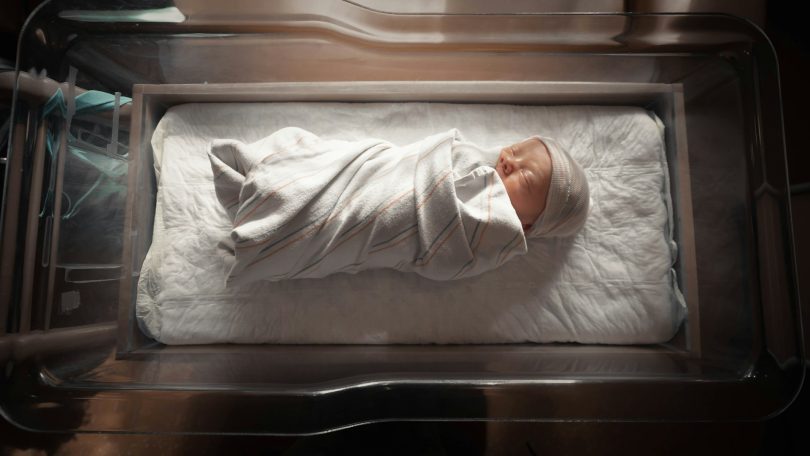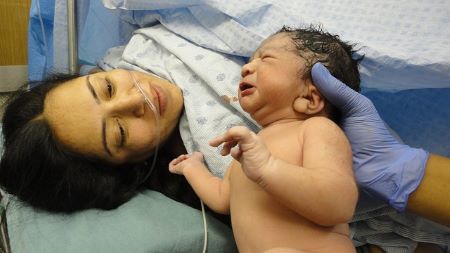A Holistic Approach to Pregnancy, Childbirth & Postpartum Mental Health
Pregnancy, childbirth, and the postpartum period are transformative experiences that bring immense joy but can also trigger mental health challenges.
In this article, we’ll explore the importance of holistic support during this critical time, focusing on mental health awareness and the services provided by The Kente & Karing Doulas
Postpartum Mental Health Challenges
1. Postnatal Depression (PND):
Postnatal depression (PND) is a common mood disorder characterised by persistent feelings of sadness, anxiety, or hopelessness after childbirth. It affects many new mothers and can persist for an extended period if left untreated. Symptoms of PND may include changes in appetite or sleep patterns, difficulty bonding with the baby, and thoughts of harming oneself or the baby.
2. Postnatal Psychosis
Postnatal psychosis is a severe mental illness that requires immediate medical attention. It typically develops within the first few weeks after childbirth and is characterised by symptoms such as hallucinations, delusions, severe mood swings, confusion, and erratic behaviour. Prompt intervention, including hospitalisation and medication, is crucial for ensuring the safety and well-being of the mother and her family.
Postpartum Anxiety
Postpartum anxiety manifests as excessive worry, fear, or apprehension about the baby’s well-being or motherhood. It can interfere with daily functioning and impact the mother’s ability to care for herself and her baby. Recognising the signs of postpartum anxiety and seeking support is essential for promoting recovery and well-being.
Baby Blues
Baby blues are transient feelings of sadness or mood swings that occur within the first few days or weeks after childbirth. They are a common experience for many new mothers and typically resolve on their own without treatment. However, if symptoms persist or worsen, it may indicate a more severe mental health condition such as postnatal depression.
Raising Awareness & Supportive Services
Raising awareness about postpartum mental health challenges is crucial for early detection and intervention. As someone who has navigated through my own journey of motherhood, I understand firsthand the significance of addressing these issues with compassion and understanding. When I experienced postnatal depression after the birth of my second and third child, it was a deeply challenging time for me. However, it was also a period of profound growth and self-discovery that ultimately inspired me to create The Kente & Karing Doulas.
Supportive Services
At The Kente & Karing Doulas, we recognise the vital role that holistic support plays in promoting maternal wellness during pregnancy, childbirth, and the postpartum period. Our team of experienced doulas offers comprehensive support tailored to the individual needs of each mother. From emotional and physical support during labor and childbirth to postpartum care and guidance, we are committed to empowering mothers and their families every step of the way. Our services include birth preparation, breastfeeding support, newborn care assistance, postpartum doula care, and emotional wellness coaching. By providing compassionate and personalised care, we strive to ensure that every mother feels supported, valued, and empowered on her journey to motherhood.

Postpartum Mental Health Challenges
1. Prevalence of Postpartum Depression (PPD) in the UK
According to the National Health Service (NHS), around 1 in 10 women experience postnatal depression within a year of giving birth. This statistic highlights the significant impact of PPD on maternal mental health in the UK.
2. Global Impact
While the prevalence of postpartum depression varies across different countries and cultures, it remains a global concern affecting women worldwide. In low- and middle-income countries, limited access to healthcare and social support may contribute to higher rates of PPD among new mothers.
3. Risk Factors
Research conducted in the UK has identified various risk factors for postpartum depression, including a history of mental health issues, previous experiences of depression or anxiety, stressful life events during pregnancy or childbirth, lack of social support, and hormonal changes.
4. Impact on Maternal & Infant Health
Postpartum depression can have significant consequences for both mothers and their infants in the UK. Untreated PPD can interfere with maternal-infant bonding, breastfeeding success, and overall maternal well-being. It may also contribute to adverse outcomes for the baby, such as developmental delays and behavioural problems.
5. Barriers to Treatment
Despite the prevalence of postpartum depression, many women in the UK do not receive adequate support or treatment. Barriers to accessing mental health care may include stigma, lack of awareness about symptoms, limited availability of specialised services, and logistical challenges such as childcare and transportation.
6. Postnatal Psychosis
Postnatal psychosis is a severe mental illness that requires immediate medical attention. It typically develops within the first few weeks after childbirth and is characterised by symptoms such as hallucinations, delusions, severe mood swings, confusion, and erratic behaviour. Prompt intervention, including hospitalisation and medication, is crucial for ensuring the safety and well-being of the mother and her family.
7. Postpartum Anxiety
Postpartum anxiety manifests as excessive worry, fear, or apprehension about the baby’s well-being or motherhood in the UK. It can interfere with daily functioning and impact the mother’s ability to care for herself and her baby. Recognising the signs of postpartum anxiety and seeking support is essential for promoting recovery and well-being.
8. Baby Blues
Baby blues are transient feelings of sadness or mood swings that occur within the first few days or weeks after childbirth in the UK. They are a common experience for many new mothers and typically resolve on their own without treatment. However, if symptoms persist or worsen, it may indicate a more severe mental health condition such as postnatal depression.





